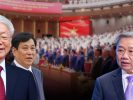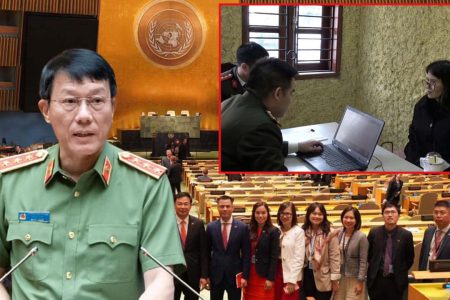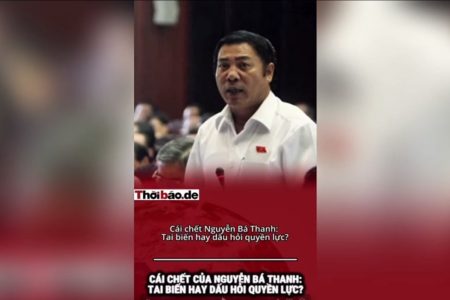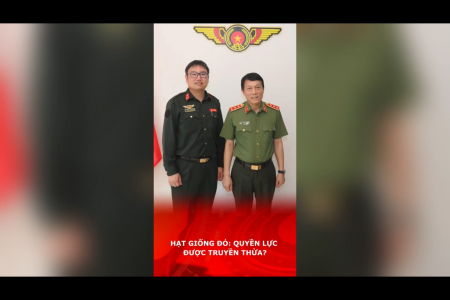
Japan needs to help Vietnam in building military drones, sharing intelligence, especially information from observations in the East Sea (South China Sea) to help both defense and civilian goals. Those are some of the recommendations that Dr. Tran Duc Anh Son – historian, expert on Japanese and Oriental studies, Head of Department of Scientific Management of Dong A University – made at a conference to evaluate marks five decades of Vietnam-Japan relations since 1973. The conference took place in Da Nang City, on July 1, 2023.
According to Dr. Tran Duc Anh Son, the conference consisted of three parts, including a historical review, a look at future prospects, and a more in-depth discussion issues in areas such as economic cooperation and investment, including Japan’s ODA funding for Vietnam, security and defense cooperation issues, and the issue of upgrading relations between Vietnam and Japan. From the current extensive strategic partner, to the desired comprehensive strategic partnership.
“The conference was born with the purpose of looking back and evaluating all areas from diplomatic relations to economic cooperation, development assistance, cultural and educational cooperation, especially political cooperation, support each other in international forums to enhance the position of the two countries, and cooperate in security and defense in the context of China’s aggressive rise in the East Sea. And Vietnam and Japan are China’s two neighbors that are both under pressure from this rise, especially over disputed claims in the East and South China Seas.
The two countries Vietnam and Japan share common interests and concerns, so the conference consisted Forum for scientists, scholars and even us to invite generals from the Academy of Defense Strategy, under the Ministry of National Defense of Vietnam, and then invited diplomats from Northeast Asia to discuss. The conference, in my opinion, has raised those issues, there have been very lively discussions to solve these issues, after the conference, we will edit those ideas to publish into a book, or in the form of articles, consider it as an information channel so that if the governments of both countries are interested, they can consult here the opinions of those who are really interested in doing research on this issue, not simply a commemorative workshop like the commemorative seminars that take place every day in Vietnam.”
Vietnam needs support for drones/UAVs and intelligence
Regarding the need for cooperation, security and defense support and intelligence and other information, scholars at the conference posed a number of specific issues to recommend to the Japanese government considers helping and supporting Vietnam, like Dr. Tran Duc Anh Son continued on his own point of view:
“On security and defense cooperation, there is a very complete report Prof. Dr. Major General Nguyen Hong Quan, former Deputy Director, Institute of Strategic Studies, Ministry of National Defense, through this report and at the discussion session, Prof. Dr. Nguyen Hong Quan has provided a lot of information, in which over the years, Japan and Vietnam have cooperated in many fields since 1992, after the war in Cambodia, Japan when resuming ODA for Vietnam, started to have step-by-step defense cooperation with Vietnam, especially in March 2014, Vietnamese President Truong Tan Sang signed with Japanese Prime Minister Shinzo Abe a joint statement on strategic partnership for the sake of peace and stability in the Asia-Pacific, relations between the two countries have been greatly upgraded, and Japan has supported Vietnam in all fields.
For example, Japan has supported Vietnam’s Coast Guard with 6 ships to patrol at sea, then trained the Vietnam Coast Guard and Navy, and then enhanced exchanges between the two countries with Japanese submarines and warships visiting Cam Ranh. Most recently, an Izumo warship also arrived at Cam Ranh port, and Vietnam also had ships to exchange with Japan and Japan to support Vietnam in many fields.
However, these fields, including training and providing information, are not as complete as expected, so the scholar specializing in the military at the conference, Prof. Dr. Nguyen Hong Quan, through his presentation and discussion, expressed his wish that the Japanese side would continue to provide more assistance to the Vietnamese side, still according to Dr. Tran Duc Anh Son, one of its key organizers:
“It is hoped that Japan will help Vietnam more in terms of technology, helping Vietnam to open workshops to manufacture unmanned aerial vehicles (UAVs or drones), especially want Japan to share with Vietnam its real-time intelligence, because Japan has a very strong satellite observation system in the East and South China Seas…”
Another aspect of supporting information at sea, but in the civil field, according to Dr. Tran Duc Anh Son, the Vietnamese scholars at the Conference also expressed their wish that „Japan provides key exact coordinates for Vietnam, to help Vietnamese fishermen fishing at sea avoid unsafe areas, or enter areas within the territorial sea border of another country, because otherwise it will violate the regulations on international IUU fishing (i.e. illegal, unreported and unregulated fishing), an obstacle to which Vietnam is being applied an IUU ‚yellow card‘ by the European Union due to considered illegal fishing activities.”
Vietnam needs to „learn“ in ODA, Japan helps according to perception
In the economic field, the scientific conference in Da Nang had a number of important reports in-depth assessment of the field of official development assistance (ODA) from Japan to Vietnam, with the point according to Mr. Tran Duc Anh Son is worth noting:
“In the economic field, there were excellent speakers, including scholar Tran Van Tho, professor emeritus of Waseda University, and then Mr. Tsuno Motonori, former chief representative of the Japan International Cooperation Agency (JICA) in Vietnam, the workshop had two presentations and an overview report on ODA investment in Vietnam and re-evaluated the process.
Tran Van Tho said that Vietnam needs to „graduate“ from ODA, like other countries that have received this capital from Japan, including Thailand and the Philippines; for development, if Vietnam relies on this ODA source forever, it will be able to fall into a situation that some researchers say is forever but ’not big‘, so there must be an appropriate ODA strategy and gradually come to an end.
Agreeing, Prof. Tsuno Motonori also wishes the same, and he said that the Japanese government is also aware of that, has made adjustments, and now Japan does not provide ODA to Vietnam according to the proposal of the Vietnamese state, which grants ODA in the direction that Japan has studied the socio-economic situation and infrastructure of Vietnam; and seeing what Vietnam needs, Japan will deliver ODA and ask Vietnam to follow that direction. That is, Japan did an overview, and found that what was needed more, rather than the previous way that the grantee asked for what assistance, Japan provided it.
In summary, now Japan suggests to Vietnam to ask for help in any areas where Vietnam is weak that Japan can support, and that is a new way of looking at ODA in the coming period, which I think that is also very authentic.”
Regarding what areas Vietnam needs to give priority to ODA funding now and in the future, from a Japanese perspective, Mr. Tran Duc Anh Son said:
“First of all, from the perspective of Japan, they realize that Vietnam still needs ODA capital to develop infrastructure, which is a very important area, especially infrastructure related to seaports, road systems, etc. railway and highway system.
Almost with the new directions opened today, especially during the tenure of Pham Minh Chinh as Prime Minister, Vietnam has promoted the construction of highways in all three regions of the North, Central and South. In particular, in the previous (Prime Minister) terms, the expressway system in the South was very little, now being promoted, this is the place for Japanese capital.
Second, Japan is also interested in the ODA loans that Vietnam asks for help for industrial development, especially in science and technology in mechanical engineering, and in developing heavy industries. weak in these areas, because resources have not yet been prepared.
Third, Japan is interested in the digital transformation process, because Japan has already begun to go through the process of building society 5.0, and Vietnam in general is only at the level of declarations, but not many practical actions. So Japan is also interested in that issue. It is the issue of ODA that the workshop had a very lively discussion about Japan’s new approach, and how Vietnam needs to adapt to exploit this ODA more effectively.“
Cooperation on labor export and rare earth export
In addition to the above content, there are a number of other issues related to economic cooperation between the two countries that were mentioned and discussed at the workshop, which is cooperation on Vietnamese-Japanese labor and rare earth export from Vietnam to Japan, Mr. Tran Duc Anh Son, continued to RFA Vietnamese:
“Japan is the largest source of ODA investment for Vietnam, the former largest foreign direct investment (FDI) country, but now Korea is slightly ahead, but Japan is the country in the world having the largest number of Vietnamese workers in Japan.“
Another content that the Japanese side is also very interested in, which is shown in the memoir ‘Japan and Vietnam are natural allies’ by the former Japanese Ambassador to Vietnam Umeda Kunio, is rare earth problem. We all know, since 2012, when Japan nationalized the islands in the Senkaku group of islands, China has a strategy against Japan and they started to introduce a policy of restricting rare earth exports. But this is a very important source of raw materials to help develop high technology in the field of manufacturing smartphones (smartphones), cars, aviation, etc. of Japan. Therefore, Japan is very interested in this issue.
Therefore, this is the direction of cooperation in the future and at a meeting in 2015, then Vietnamese Prime Minister Nguyen Tan Dung also promised then Japanese Prime Minister Abe Shinzo, that Vietnam is ready become a rare earth supplier to Japan.
As we know, currently, Vietnam is assessed by the US Department of Minerals and Geology as having 22 million tons of rare earth reserves, ranking second in the world, half of China, and China has 44 million tons. And Vietnam has had cooperation with a number of other countries, some of which can be mentioned as with the United States and this is with South Korea, on the occasion of the visit of Korean President Yoon Suk-yeol to Vietnam.
Regarding rare earth export cooperation, in 2022, Vietnam exported rare earths to 4,100 tons, ten times higher than the export volume in 2021, and those are some prospects that were also discussed during the workshop.“
Will the relationship be upgraded to a comprehensive strategic partnership?
According to Dr. Tran Duc Anh Son, there was a question that was also a content asked by scholars, delegates, and audience members attending the seminar „Vietnam – Japan relations: looking from history, looking to the future“ is dedicated to special attention, related to the prospects of relations between the two countries, specifically as follows:
“On the question of whether Vietnam and Japan will upgrade their relations from an Extensive Strategic Partnership to a Comprehensive Strategic Partnership, Le Huy Hoang, a representative of the Vietnamese Ministry of Foreign Affairs’ Japan Department of the Department of Northeast Asia, reported that on February 9, 2023, General Secretary of the Communist Party of Vietnam Nguyen Phu Trong had a phone call with Japanese Prime Minister Kishida Fumio, and said that he would raise the relationship to one step higher.
And then, on the occasion of his visit to the expanded G7 summit in Hiroshima in the last week of May 2023, PM Pham Minh Chinh also made commitments to Japanese Prime Minister Kishida Fumio and two parties agreed to promote the upgrading of the two countries‘ relations to a new height, higher than the existing one.
And I also have the opinion that with the existing relations between the two sides like now, this year or next year, the two countries will discuss upgrading. The problem is how the two countries find the right terminology and as we all know, finding the right term, or upgrading the relationship between the two sides between Vietnam is not an easy thing to do, because there is also a neighboring country that always pays close attention to the Vietnam-Japan relationship, and they always think that if Vietnam and Japan upgrade something, perhaps it is ‚against them.’
Therefore, the two countries must be very clever in finding words and finding the right time to upgrade that relationship, even though the relationship is already very good now,“ said Dr. Tran Duc Anh Son told Radio Free Asia from his own point of view on July 3, 2023.
Thoibao.de (Translated)


























